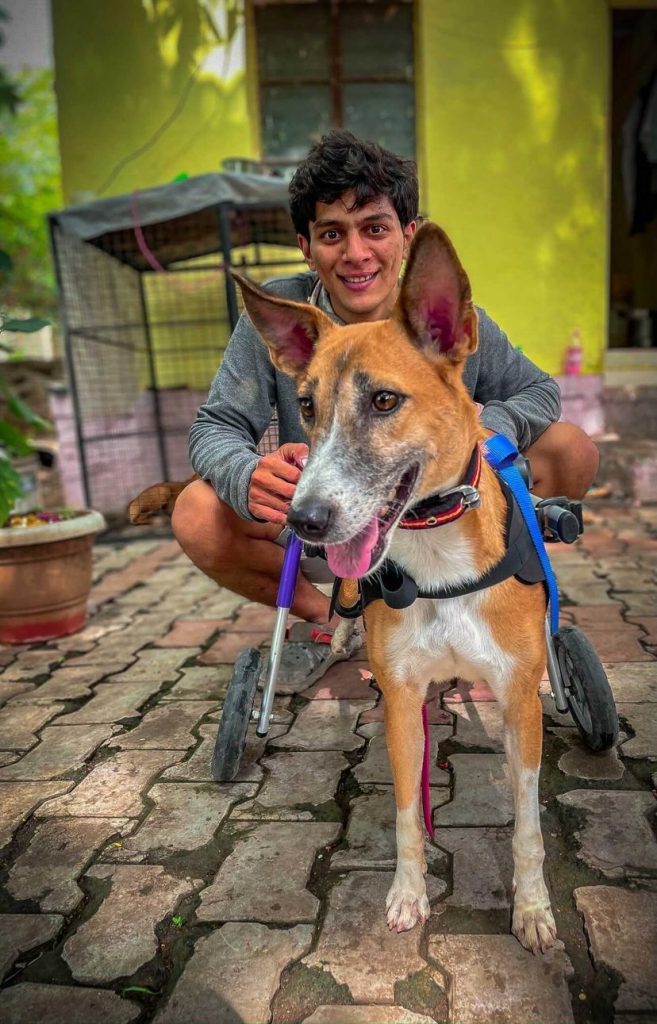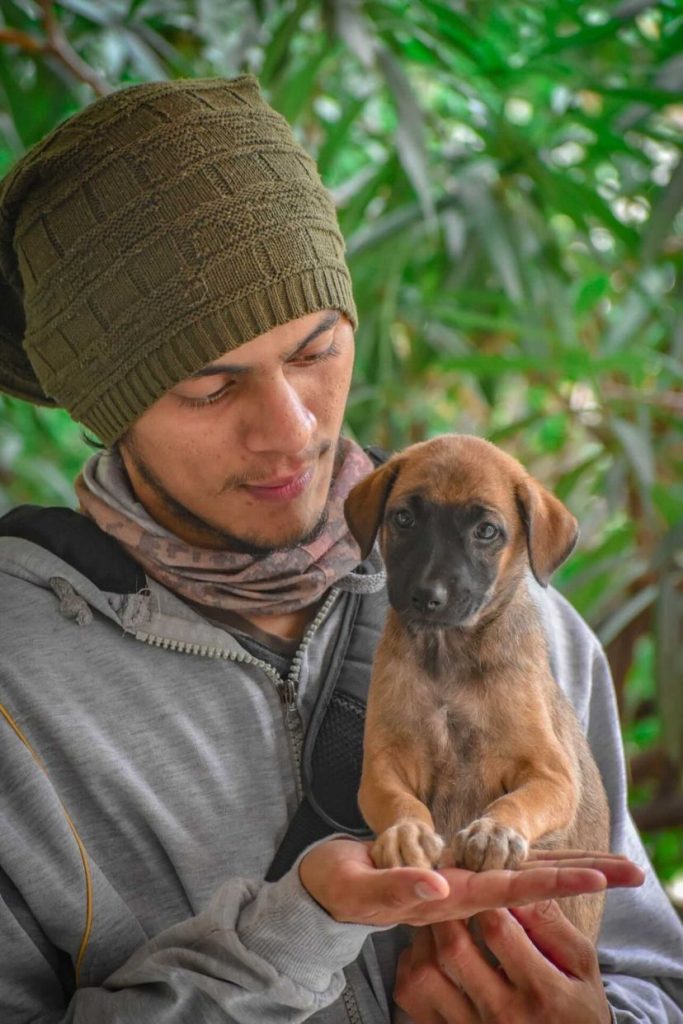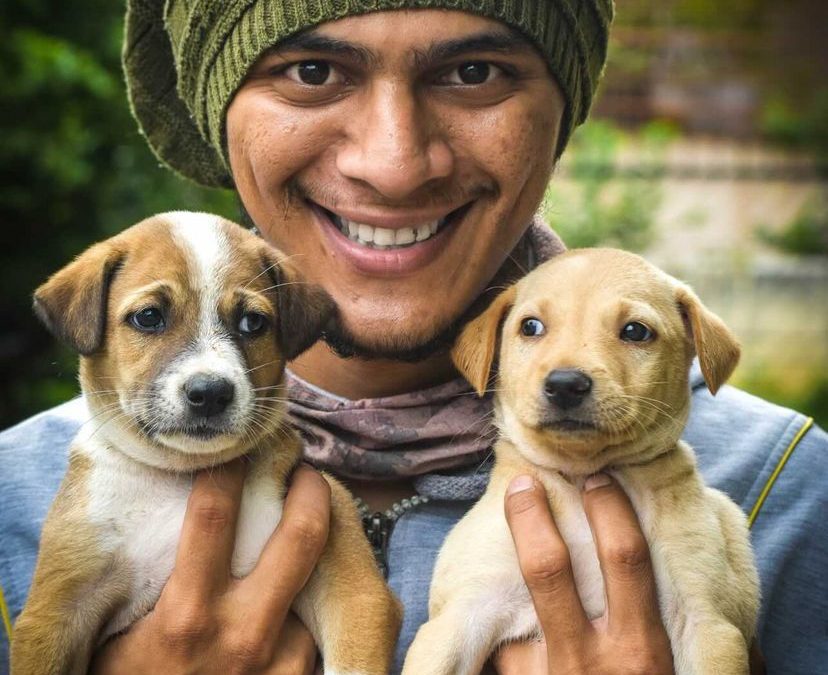We are all part of the ecosystem. Human life is possible because all other living creatures come in cognizance to do their part, breathing soul into our lives to help us dream, chase, and live. Often, in our own lives, we forget the contribution of these little beings in our life. We forget to play our part in their lives. Our ignorance often costs these their lives. But, setting out with a mission to set this right, Ashish Joshi is trying to make the lives of strays better.
He has taken it upon himself to save those whom we abandon or chase away. Ashish started to feed and save stray dogs when he saw a dog meeting with an accident when it was going across the road for food. Read our conversation with the young and empathetic, Ashish Joshi.
Q. When you started you were an undergraduate student, now what all have changed, tell us something about yourself.
I am an architect now, I work in a firm. I also do architectural freelance work to earn, and that money is used in feeding and saving activities. Earlier, I was in college, but now I earn and simultaneously keep my initiatives running. A lot of people do not know this.
Q. How do you do it so regularly?
When you get involved in something, you actually get to know about this more. Like, when you feed a dog, it becomes familiar to you. So, later you can’t ignore them. This way I wanted to keep doing it forever. Like they drink water from the dirty puddles on the road. My thing is nobody should actually suffer like this. Be it us humans or them. I determined to feed many dogs as possible.
Q. What are some of the everyday problems you come across, on a rescue mission?
Usually, there are new problems every day. You don’t know if today you will have the same problem or not. Sometimes the colony opposes it. So, when one person opposes a lot others would too. Majorly, the problem is because they are not aware of how important this is. So we talk to them and make them understand why we do what we do. After that, they don’t really oppose it. People accept it usually.

Like, I had an adopted indie dog, now everyone in my contacts has an indie, some 127-130 dogs. I take this in a positive way, that there is a change in the society.
Q. How hard was it to manage the help during the pandemic?
Ans. In the beginning, there were a lot of problems. There were a lot of issues. We had to request the police and the local authorities. But, later everyone came to help. The authorities were quite cooperative in what we did. Also, for a pass, the animal welfare board of India issues them. So, if someone wants to get one, they can fill out the forms and receive it
Q. How is the financial aspect of taking care of stray dogs maintained? Also, tell us how you manage to make time for yourself?
Ans. When I was in my third year, I used to earn from internships and use that money. And, now I do freelance to have it done. There has been no help from NGOs as such, but I manage to do it to an extent that is feasible to me. There is no team, and I have two friends who help me during emergencies. But, I need to be consistent with what I do. I need to make time for that. I make sure I give enough time to rescue missions and feeding when I am out. What is personal life? If we keep on going with my life who will look after them, now to me, they are personal time.
Q. In the future, what are the plans to take this ahead?

Ans. I want to take this to a big level and bring a permanent solution. And, there are also financial responsibilities as I age, and maybe I cannot continue this. To be honest, with feeding there is no bigger solution. There is nothing in feeding, and sterilizing them. Because the dogs would reproduce regularly and the population would increase again.
As their production increases their suffering increases too. A female dog has to eat to feed her children, which exhausts her body. But, in the end, the puppy passes away in an accident or due to some mishap. And, then the mother dog also suffers mentally. All I want is that the female dog lives well, just like all of us. For this, there needs to be a permanent solution.
Q. What is one message you will like to give our readers?
We are socially aware but they are not. So, if we come across strays on our way, please make sure that you feed them. That is the best thing to do. You are saving them from a day’s struggle. If everyone starts feeding at least one dog, the intensity will be huge. All of us get out for some reason or the other, so why not take a bottle with us, give them water, give them food. If a dog is stuck somewhere, help them. It might be a small help for us, but it’s a big deal to the dog. We can make a huge impact but only if we start. And, all of us can live happily, them and us, everyone. This is my small attempt to inspire others to help at least one dog.
I have planted around 4-5 jungles. It is not only about animals but also about the environment in its entirety. We break tree branches for our problems and keep on increasing our carbon footprints. But, little do we think of giving back to the environment.
We need to make sure that this does not create greater harm by at least planting one tree for each person, trees that give you shade. Those are indigenous. We are creating a thousand lives with one tree, from birds to insects. So, work for trees as well and educate others. We are inherently born to love and be accommodative, but we learn hate here in the world. So, that is extended to the environment as well.
In the end, Ashish urges everyone to sow the seeds of love for the environment in children. He says when we take children to zoos they believe the lion needs to be caged. But, we need to teach them where they belong to. Children should be at a very young age taken to shelter houses, old age homes from where they pick up the lessons to love. Because that’s where the cultivation happens.


